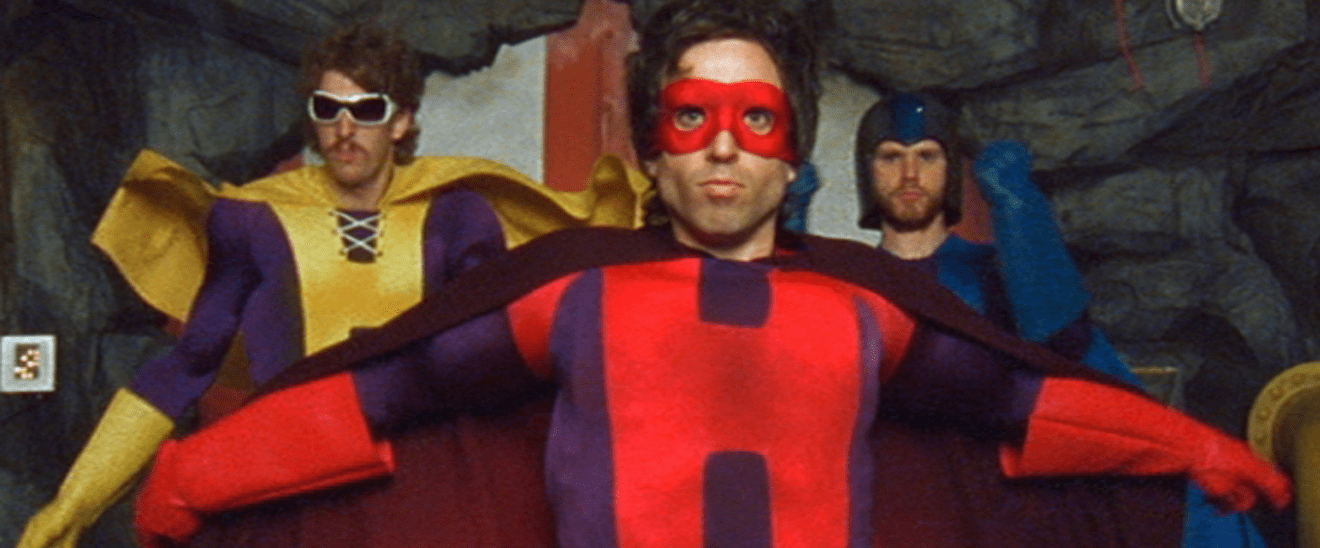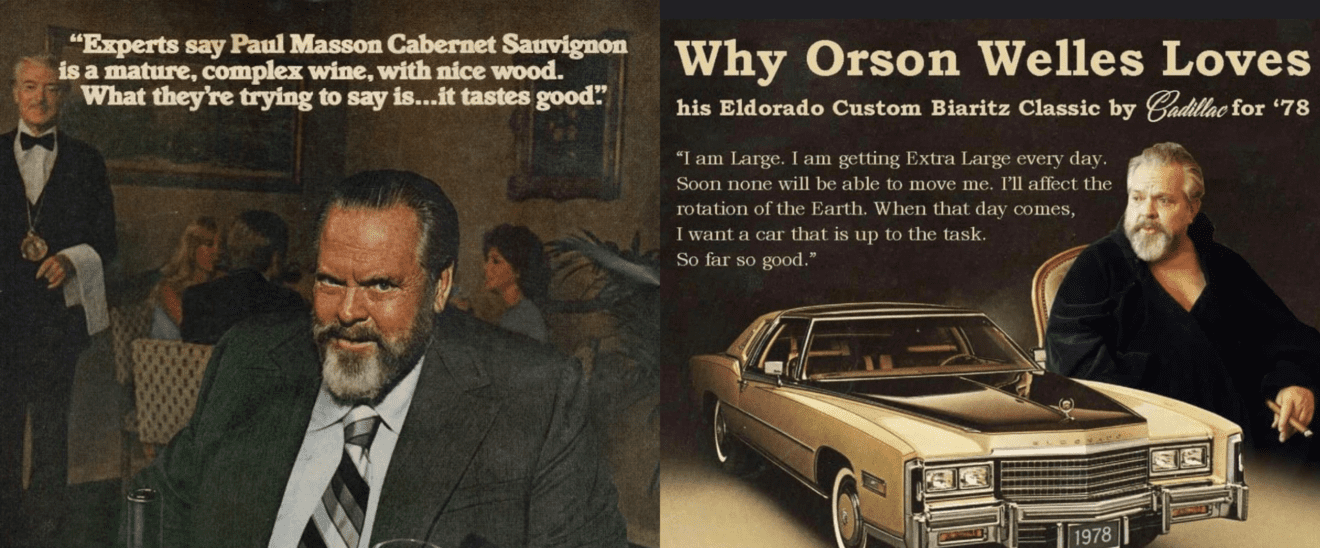
Charlie Stewart
Senior Content Strategist
Charlie brings his creative flair developing content and copywriting across all of our campaigns.

Storytelling is the key to great marketing - but to succeed, you need to know how to get others to tell you their stories.
This is an article to help you get better at story-driven marketing within your organisation or for your clients.
I’m not talking about your old school wishy-washy once upon a time style storytelling. This is about drawing out the kind of authentic stories your colleagues (or clients) don’t even know they’re hiding. It’s about getting them to tell those authentic stories in their own words and, perhaps most importantly, keeping them on track to maintain a sense of focus and satisfying narrative cohesion.
Which is why we’re going to start by talking about the brief rise and fall of early 2000s English pop rock band, The Hoosiers.

It’s a sad fate that befalls many an aspiring musician. They’ve been writing songs with their friends since they were school kids. When they’re in their early 20s, their band finally get their big break and the chance to put all those songs into a debut album – and it’s a hit!
But then, the pressure’s on. The label wants a second album… and instead of having years of experiences to fall back on, ages to put those feelings into lyrics and plenty of time to perfect the melody, they’ve got months. And what happens when they can’t hit the deadline?
R.I.P. The Hoosiers. Goodbye, Mr A, we hardly knew ye.
That’s what we call “second album syndrome” or “the sophomore slump.”
You see the same thing happen in loads of different mediums. Take comedy, for example. There are plenty of famous comedians whose early stuff is relatable and well-observed, but who eventually become victims of their own success. How can you do an hour of observational comedy if your A-lister life is now completely different from your audience’s?
Next thing you know all you can write about is how incredibly clever and successful you are. That’s what everyone you meet keeps telling you, but it’s hardly relatable to your average audience member. The truth is that Extras ended in 2007, and no matter how many times you mention how uniquely brilliant you are you can’t quite shake the creeping feeling that it may no longer be true.
If you want to be creative, you can’t keep looking inward. No matter how deep you think you are, that well will run dry pretty quick. You need experiences! In the 1980s the great filmmaker Orson Welles famously implored a class of young filmmakers to stop watching so many films.
Why? Because he wanted them to go out into the world and have the experiences needed to hone their own artistic vision, to understand film as a medium to translate their real-world observations into something that could be understood by others. That’s a bit highfalutin for our purposes here, but it contains a useful kernel of truth.

When you’re writing for your audience, you can’t rely on introspection as a bottomless pit of interesting, engaging and authentic stories. You can’t turn inward, you have to turn outward.
In the world of story-driven marketing, turning inward usually means looking for generic stories that tangentially relate to the point you’re trying to make.
Here’s an example.
Imagine you work at an energy company and need to write a marketing email that’s going to promote a new deal on solar panels. You write something like this:
The Wright brothers’ first powered flight lasted just 12 seconds. To some, that might seem like a failure. But just 66 years later, man had landed on the moon.
Success might not be obvious right away, but by pushing progress in the right direction, we have the chance to change humanity’s future. It’s the same with our new solar panels…

But here’s the thing. That’s not an authentic story. That’s a hook.
Hooks have their uses, but while they’re likely to grab your audience’s attention in the short term, they don’t have the authentic connection to another person that’s going to have a lasting impact.
Eventually, you’re going to run out of hooks – and if you don’t, your audience is still going to get bored of the formula. In marketing, that’s our equivalent of second album syndrome.
To avoid second album syndrome in your storytelling, you need to be constantly engaged with the outside world, drawing authentic stories from the people directly related to… whatever it is you’re telling your story about! Think how much more convincing it would be to hear from a homeowner about how solar panels lowered their bills and helped them do their bit for the planet and their childrens’ future!
Here’s another example.
I once did some work for a large forecourt operator. Their goal was to recruit more contract managers to run new sites popping up across the UK. My job was to take the recruitment push and turn it into a compelling story that would convince people to make the leap.
I couldn’t do it. But the existing contract managers could.
By filming them briefly telling their stories in front of their forecourts (shiny new car-washes and EV chargers in the background) we were able to convince far more people to apply than ever before. It didn’t matter that they weren’t delivering well-prepared, lyrical speeches. Their authenticity shone through – and spoke directly to the right audience.
“Well then,” you might be thinking, “if all I need to do is get other people to tell their stories… what’s the point of me being involved at all?”
Let me tell you.
I run a lot of Dungeons & Dragons games, at least one per month for the last 10 or so years. Believe it or not, time well spent.
For the uninitiated, D&D is less of a board game and more of a collaborative storytelling exercise constrained by certain rules. The players take on the roles of specific characters while they’re led through the world and its denizens by a facilitating Dungeon Master – that’s me.

A lot of the time, I’ll finish games and the players will come up to me and ask “was X part of the story planned? Did you know Y player was going to do Z? Could we have done it all differently?”
I’ll never tell them. But I’ll let you in on a secret.
The best games are the least planned, the ones that give the players the opportunity to push the story in one direction, and where the Dungeon Master allows it – and takes it a step further.
If a player off-handedly mentions their character’s long-lost father, maybe that’s the form the evil wizard they’re hunting down will assume to manipulate them.
If another player’s character is only interested in fame and fortune, perhaps the next room they enter will try to lure them in with a trapped treasure chest.
If one player decides they want to buy an adorable kitten at the local market, maybe the merchant they ripped off in the last town will kidnap the cat in revenge.
These are bad examples. Why? Because I’m coming up with them whole cloth. It’s just me, looking inward, racking my brains – the exact thing I told you not to do.
In marketing, authentic storytelling is all about responsiveness.
Your role isn’t to impose a pre-ordained story onto other people, it’s to facilitate their ability to tell stories. You aren’t here to be a novelist – you’re here to be a Dungeon Master.
So how do you help other people tell their stories?
By listening closely, and leading the person you’re talking to back to the most interesting ideas and details that they’ve brought up before, so that they can flesh out the most relevant parts of their story in real-time.
By asking questions that, when answered, will help satisfyingly complete a narrative thread they’ve already started – wittingly or not.
By listening, and using your understanding of what makes a good story to gently guide them to do the same.
That requires a grasp of storytelling on your part that most people you’re talking to won’t have. You need to be able to identify what’s going to be narratively satisfying on the fly, what the most interesting paths will be to explore, and how to ask the types of questions which will help your subject flesh out their own story on the fly.That’s the point of your involvement. You are vital, but if you do your job well, it will seem like you did nothing at all. Practice – not preparation – makes perfect.
Read Socialise: Unlock your content, maximise social media engagement and win more work than ever before by Iain Scott, Rebecca Holloway and Charlie Stewart
Want to get in touch about your marketing? Drop me an email at [email protected].

Senior Content Strategist
Charlie brings his creative flair developing content and copywriting across all of our campaigns.
View my other articles and opinion pieces below
Senior Content Strategist Charlie Stewart explains how B2B firms can create authentic, story-driven marketing content that resonates with audiences and builds trust in the age of AI.

Charlie Stewart shares how video content can connect with your audience at the exact moment they’re searching – and why it’s time to treat video as a vital search asset, not just a creative one.

Senior Content Strategist Charlie Stewart shares how Base Creative uses AI to streamline research and content audits – while keeping strategy, creativity, and quality in human hands.

If you’re hoping to create one perfect piece of content so manipulative that it sends your site straight to the top of Google Search, I’ve got some bad news. Exactly how Google’s algorithm works remains a bit of a mystery. What Google has made crystal clear, however, is how its team assesses the quality of […]
